Abstract
Certain derivatives of the 8-aminoquinolines have been shown to affect some blood constituents and haemopoiesis, to induce functional changes in the central nervous system, and to cause other organ lesions. The 8-aminoquinolines vary widely in their toxicity and ability to induce tissue damage in different laboratory animals. In the present study, the subacute toxicity of primaquine was studied in beagle dogs, rhesus monkeys, and albino rats. Based on body weight, the dog was more sensitive to primaquine than the monkey, while the rat was the least sensitive. In all three species, primaquine elevated the levels of serum transaminases, decreased the level of fasting blood glucose, and caused inflammatory and degenerative changes in the liver and kidneys. In addition, primaquine caused pneumonia and elevation of serum haptoglobin in the dog; erythrocytopenia in the monkey; reticulocytosis and the presence of nucleated erythrocytes in the rat; methaemoglobinaemia, thrombocytopenia, and inflammatory and degenerative changes of striated muscle (including the myocardium, diaphragm, tongue, and skeletal muscle) in the dog and rat; oedema and gliosis of the cerebral cortex in some monkeys; lymphoid depletion in the dog and monkey; and bile duct hyperplasia in some rats.
Full text
PDF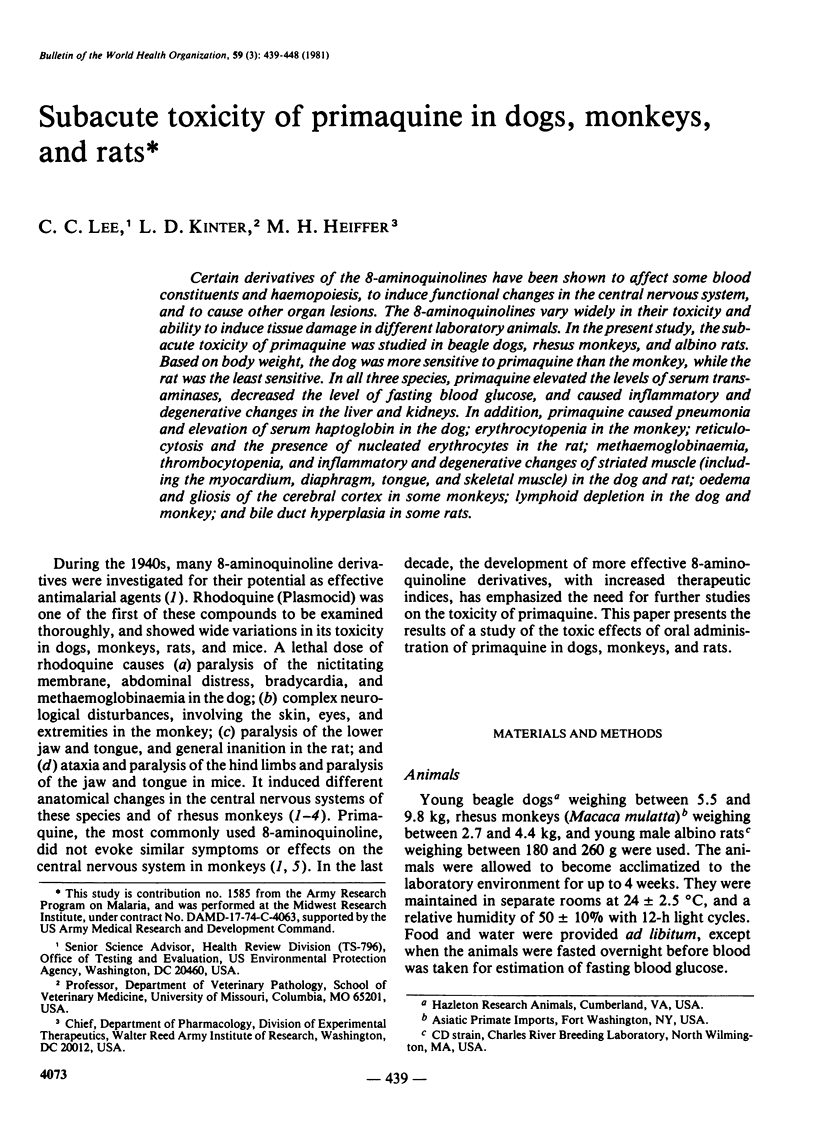
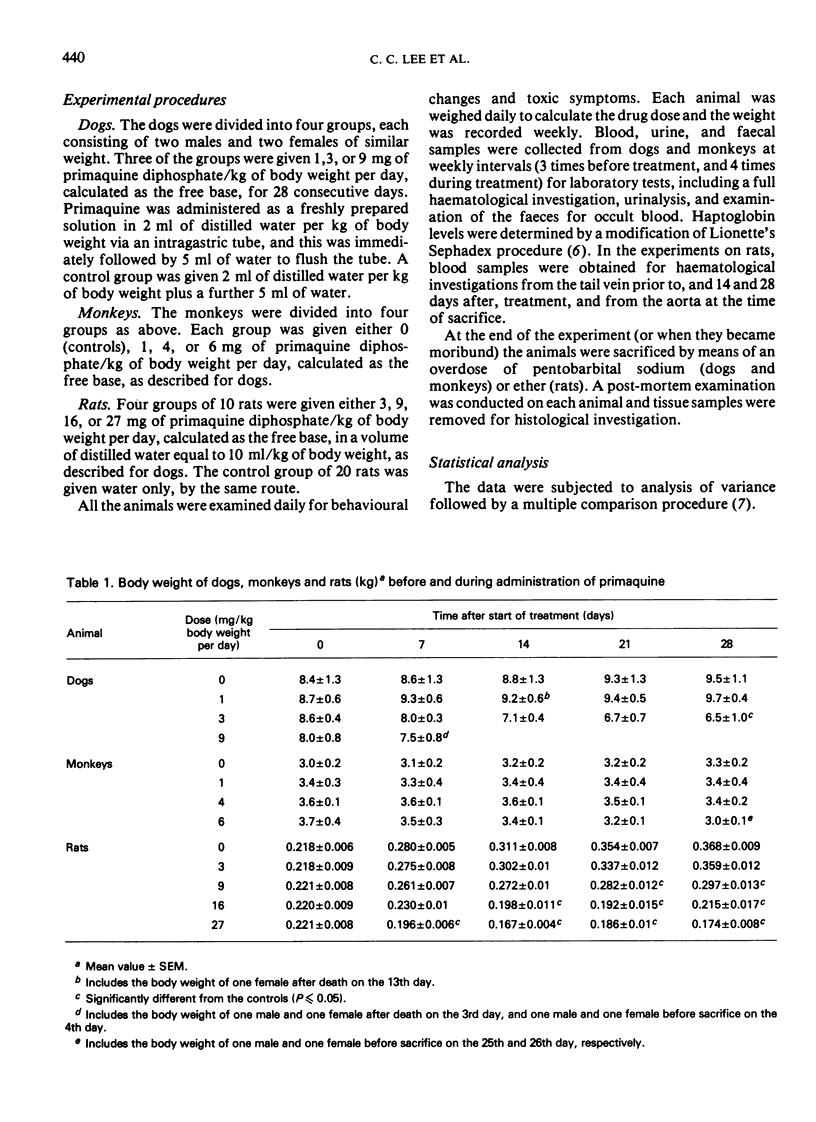
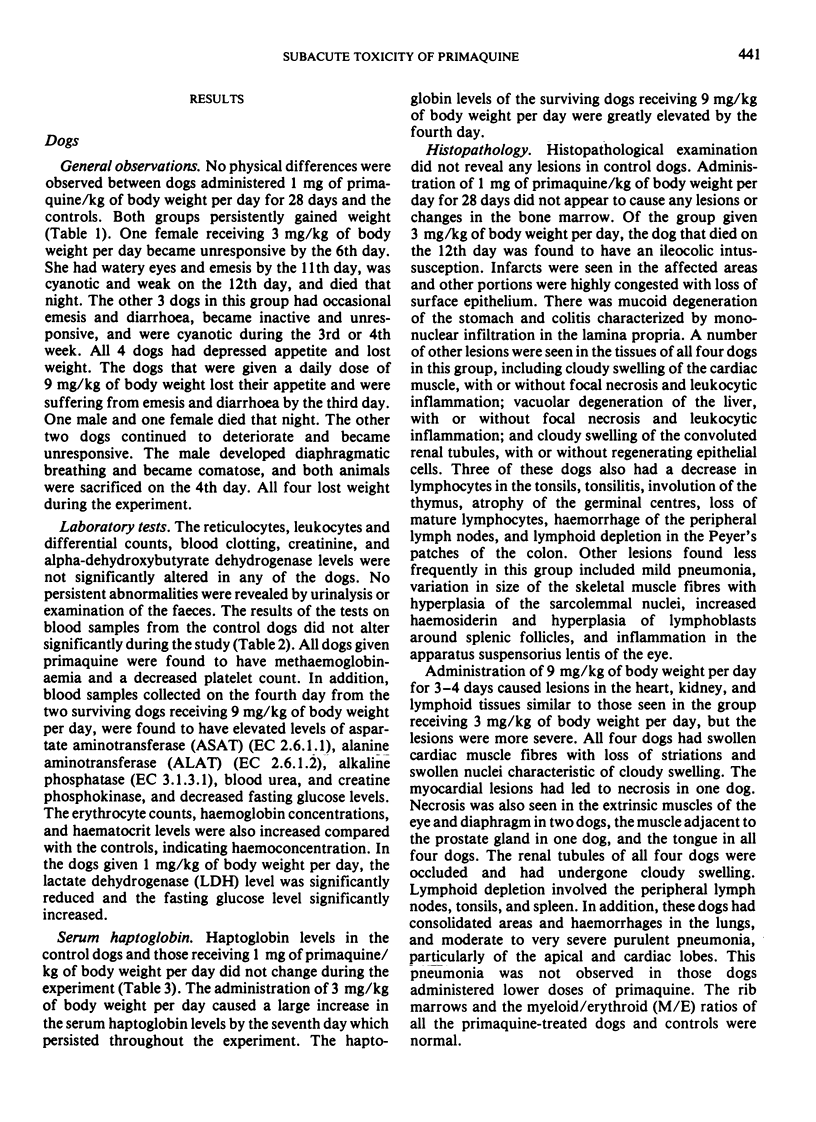
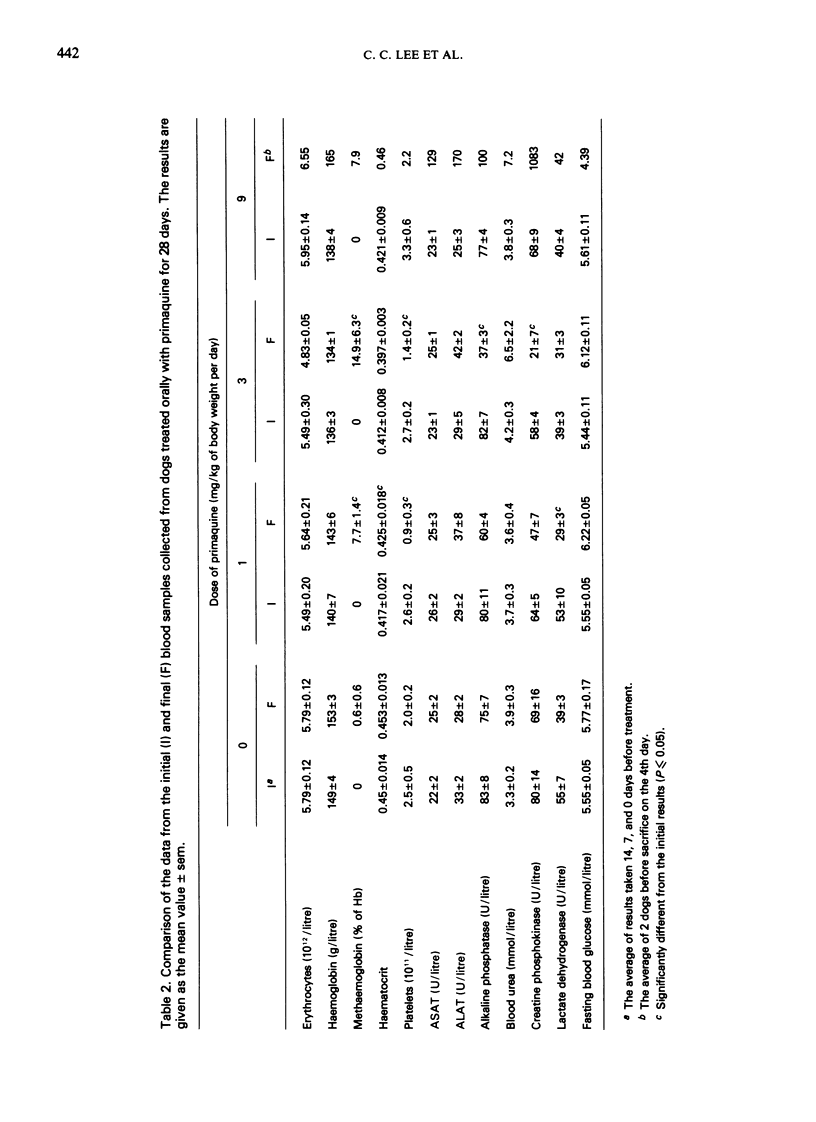
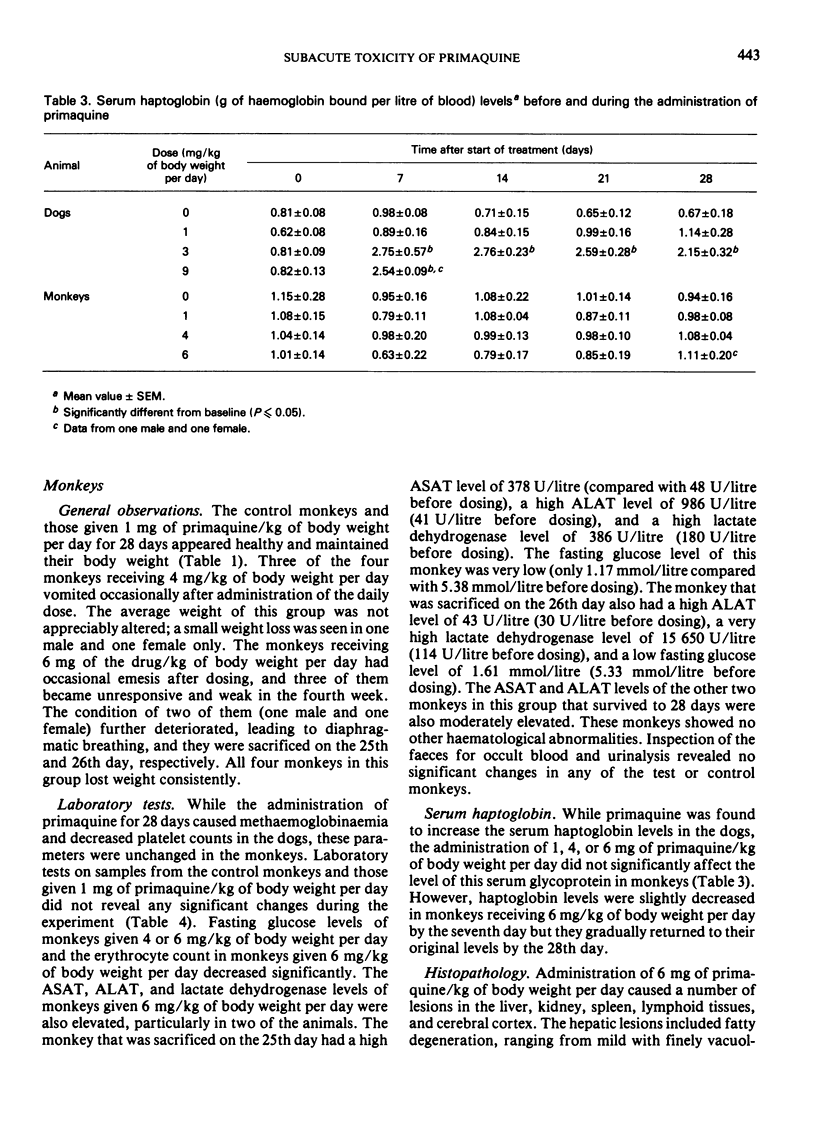
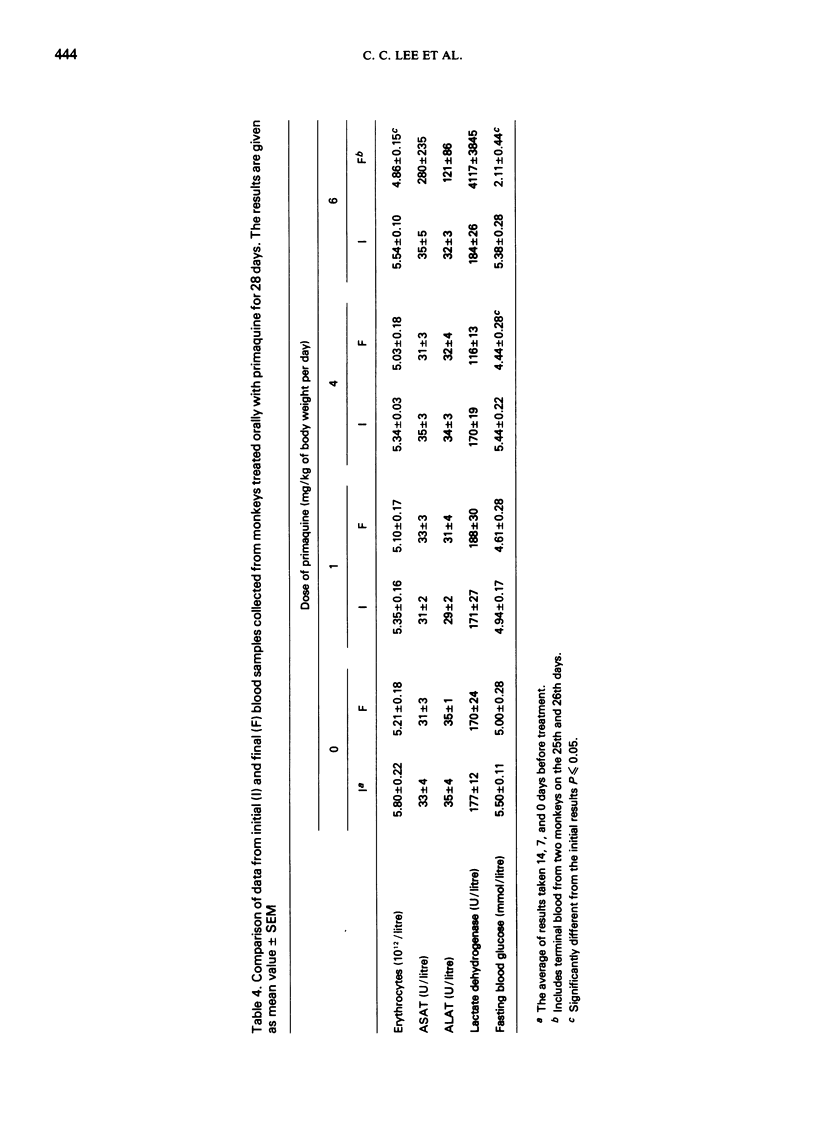
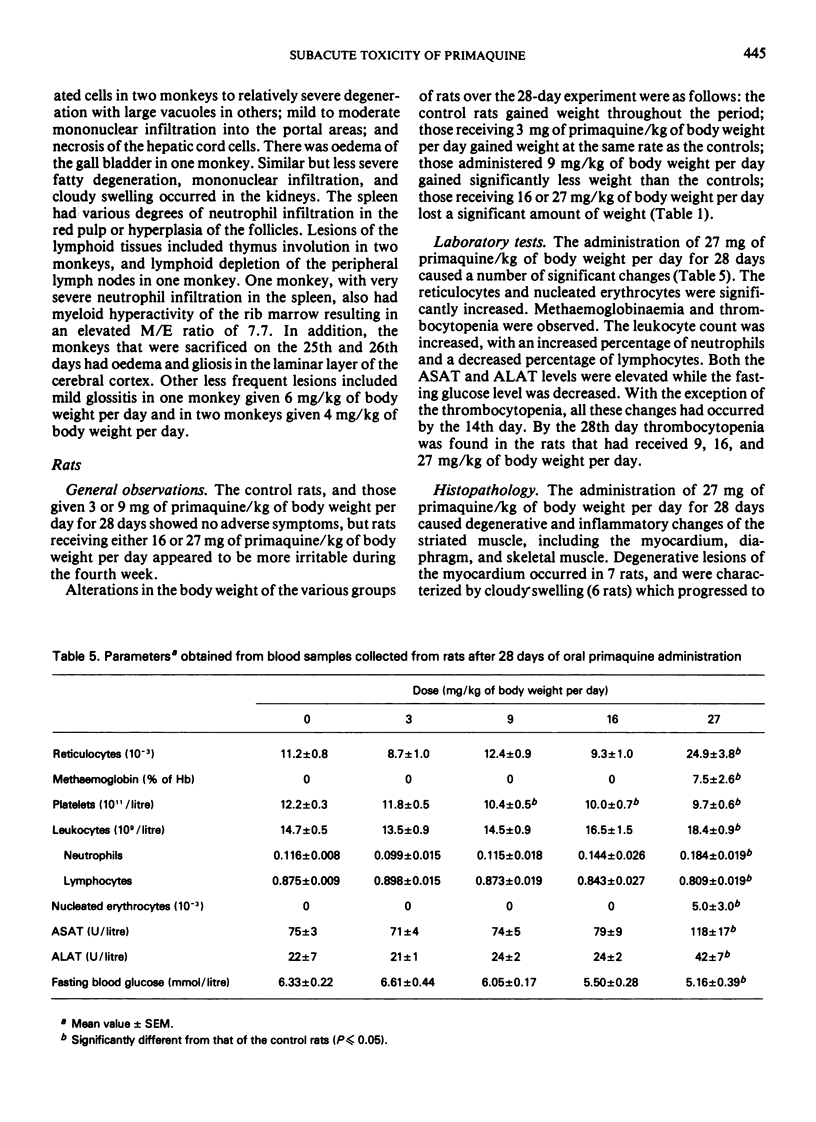
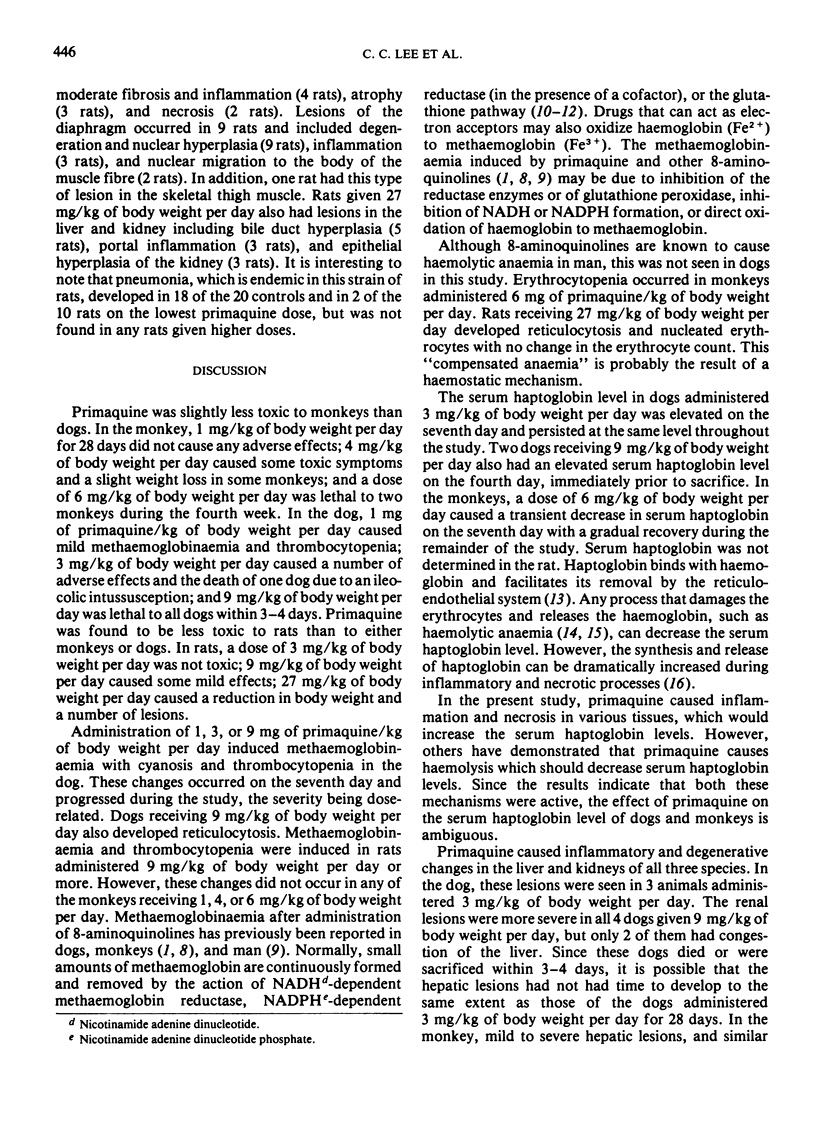
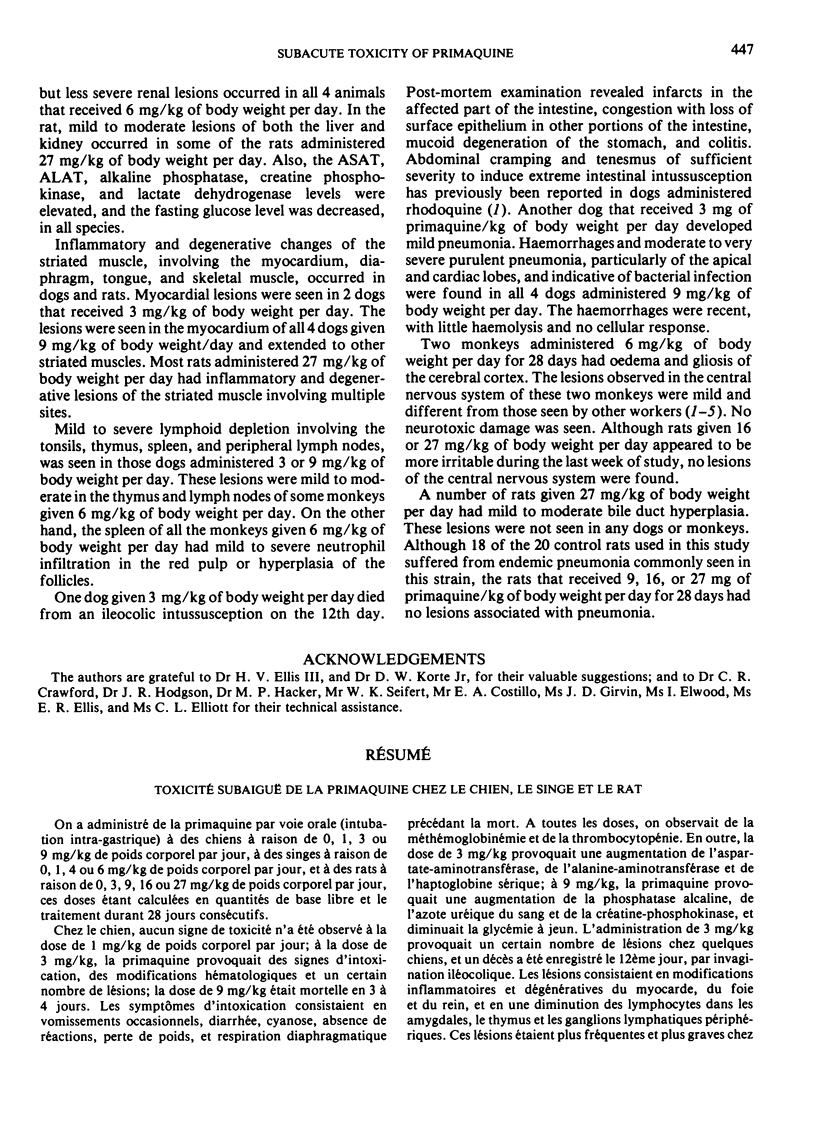
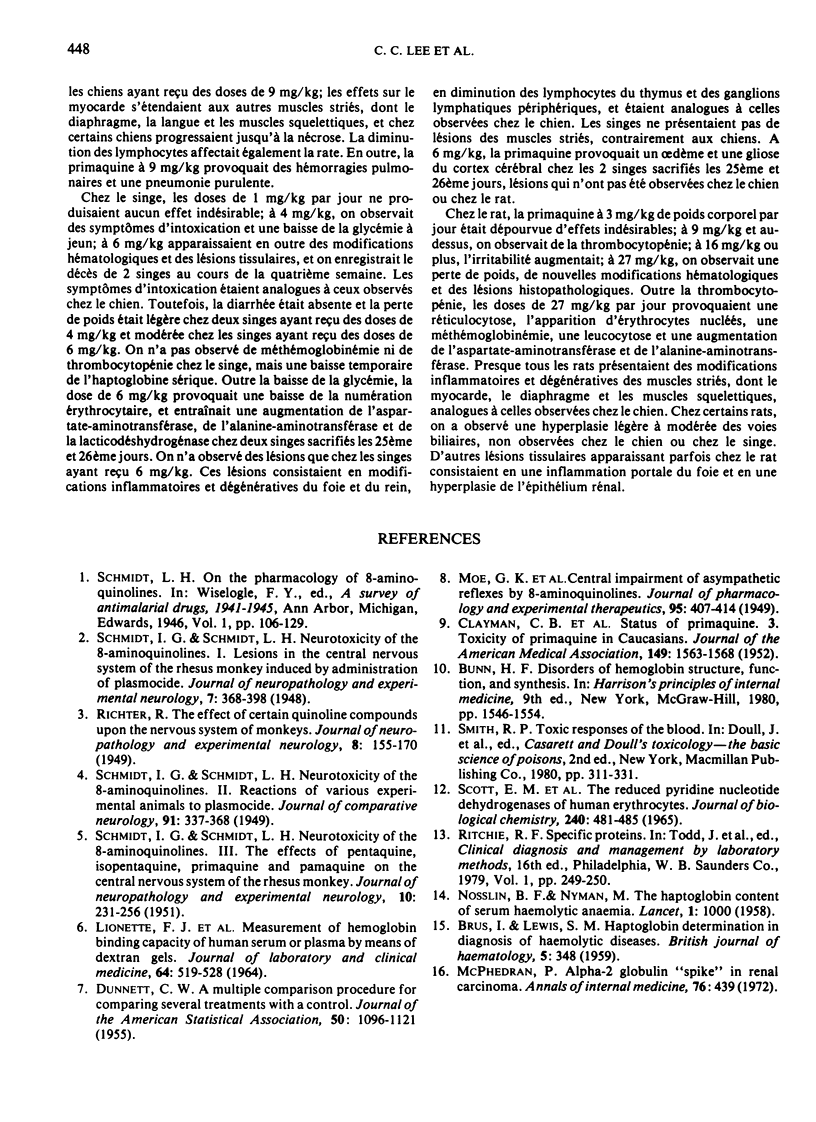
Selected References
These references are in PubMed. This may not be the complete list of references from this article.
- CLAYMAN C. B., ARNOLD J., HOCKWALD R. S., YOUNT E. H., Jr, EDGCOMB J. H., ALVING A. S. Toxicity of primaquine in Caucasians. J Am Med Assoc. 1952 Aug 23;149(17):1563–1568. doi: 10.1001/jama.1952.72930340022010b. [DOI] [PubMed] [Google Scholar]
- MOE G. K., PERALTA B., SEEVERS M. H. Central impairment of sympathetic reflexes by 8-aminoquinolines. J Pharmacol Exp Ther. 1949 Mar;95(3):407–414. [PubMed] [Google Scholar]
- McPhedran P., Finch S. C., Nemerson Y. R., Barnes M. G. Alpha-2 globulin "spike" in renal carcinoma. Ann Intern Med. 1972 Mar;76(3):439–441. doi: 10.7326/0003-4819-76-3-439. [DOI] [PubMed] [Google Scholar]
- NOSSLIN B. F., NYMAN M. Haptoglobin determination in diagnosis of haemolytic diseases. Lancet. 1958 May 10;1(7028):1000–1001. doi: 10.1016/s0140-6736(58)91804-x. [DOI] [PubMed] [Google Scholar]
- RICHTER R. The effect of certain quinoline compounds upon the nervous system of monkeys. J Neuropathol Exp Neurol. 1949 Apr;8(2):155–170. doi: 10.1097/00005072-194904000-00003. [DOI] [PubMed] [Google Scholar]
- SCHMIDT I. G., SCHMIDT L. H. Neurotoxicity of the 8-aminoquinolines. III. The effects of pentaquine, isopentaquine, primaquine, and pamaquine on the central nervous system of the rhesus monkey. J Neuropathol Exp Neurol. 1951 Jul;10(3):231–256. doi: 10.1097/00005072-195107000-00001. [DOI] [PubMed] [Google Scholar]
- SCHMIDT I. G., SCHMIDT L. H. Neurotoxicity of the 8-aminoquinolines; reactions of various experimental animals to plasmocid. J Comp Neurol. 1949 Dec;91(3):337-67, incl 8 pl. doi: 10.1002/cne.900910303. [DOI] [PubMed] [Google Scholar]
- SCOTT E. M., DUNCAN I. W., EKSTRAND V. THE REDUCED PYRIDINE NUCLEOTIDE DEHYDROGENASES OF HUMAN ERYTHROCYTES. J Biol Chem. 1965 Jan;240:481–485. [PubMed] [Google Scholar]


